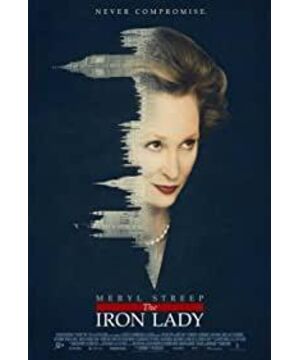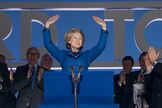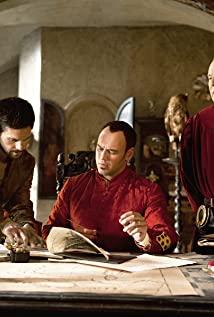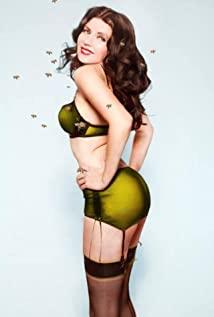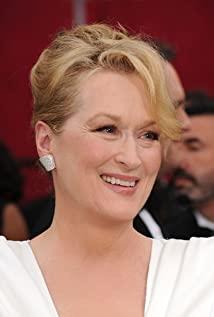Britain is a very delicate country in my eyes. They rarely use passionate revolutions to change their systems, and they rarely make earth-shaking destruction and creation. Everything is like the character of Prince Charles. He sticks to all his own personalities, and reacts slowly to changes in the outside world. They like to tinker with the existing mechanism and keep improving. This may be why they have the most bureaucratic but very effective government system. I think the greatest invention of the British is not the steam engine, but the control of power. Power is like a monster, it will try its best to inflate itself anytime and anywhere. The excessive expansion of power will inevitably lead to the oppression and domination of the opposing party by the party in control. But this does not seem to be the British way of doing things. Their intricate system is like an exquisite prison, trapping all aspects of power and checking and balancing each other. If one party is too strong, then this mechanism will relatively adjust itself to re-adjust this balance. British politics has always been looking for development in decline and finding a balance in confrontation. They are always looking for ways to find both solutions through reforms.
Many British people don't like Margaret Thatcher, especially the working people. Because it was she who introduced the law into industrial relations, which made the original Voluntarism replaced by Individualism. Individualism has always been the stuff of the United States, and the most unwelcome thing in Britain is all kinds of American gadgets. Moreover, in this way, the areas where unions could obtain room for maneuver through collective bargaining were instantly taken away by the law, and even the procedures for strikes were greatly restricted. This makes the docile British unbearable and then resorts to violence. The various riots in those days can be seen in the film.
As a representative of the working people, the Trade Union exists to protect the interests of employees, as if it is a different kind of management and domination for employers outside of the law. But in the latter part of the last century, the situation in Britain was far from this. Facing the threat of global economic integration, the high cost of manpower in the UK makes British products uncompetitive in the international market. Due to the agreement reached with the trade union, it is almost impossible for British employers to reorganize their own manpower, and it is impossible to seek cheaper labor resources in the international market. The decline in sales will inevitably lead to a decline in output, and the decline in output will inevitably force desperate employers to lay off employees. Layoffs will cause strikes, and strikes further aggravate human resource costs. The vicious circle led to economic decline and the unemployment rate remained high.
But why doesn't the trade union consider "the enterprise must survive, and only if the enterprise can survive, will workers eat a bite to eat", and instead push the enterprise aggressively to the end? I think there are two reasons. One reason is that labor unions kidnap workers to gain political power and economic benefits. (This situation is vivid in the cartoon Negotiations between Penguins and Monkeys in Madagascar, I'm sorry, but the troubles have entered.) Another reason is that although individuals in the market are rational, people cannot make decisions due to information asymmetry. Absolutely rational choice. Workers only know that they want higher wages, more rest time, and more labor rights, but they don't know that this will end up losing their jobs.
In this historical background, Margaret Thatcher played. The reason why I say that background is because I think the most important thing about Margaret Thatcher is "not compromise." The power of the trade unions is sufficient to mobilize the entire proletariat across the country to contend with the government. And she stood up and withstood the pressure brought about by the reform pains, this kind of courage can definitely be compared with Churchill's spirit of smashing to the bottom with Germany at that time.
Some people say that this film is too feminine, but I think it's a good thing. Because in order to meet the status of prime minister, Mrs. Thatcher has created an image of an "Iron Lady" in the British society, which is still very sexist to this day. People feel that she is unmatched, as sharp as a knife. But how can you forget that she thinks she is a woman? She compares the governance of the country to a house holding, and the political skill of governing the country is full of wisdom. She takes care of the whole country like a mother. The government’s position is neither an employer nor an employee, but to adjust the market order in accordance with the economic thinking that "improved efficiency is good for all market entities". This is like a mother disciplined her eldest son and younger son.
Aunt Mei's performance is truly brilliant and superb. In fact, Aunt Mei is not the kind of imposing imposing person. After seeing a real person, she feels that this aunt is an aunt next to her with a gentle smile, and she deserves to be a shared idol of my mother and me. But in the film, I can’t help but want to jump up and cheer like a voter. In the "Prime Minister's Questioning" section of the film, she and the shadow cabinet have had several confrontations that really make people can't help applauding her. I read the Prime Minister's question from the current Prime Minister David many times on the BBC, and I really feel that it is Mrs Thatcher who is more bold and character.
(I just don’t want to write it all of a sudden. Let’s do this first. If I remember it, I’ll make up.)
View more about The Iron Lady reviews


